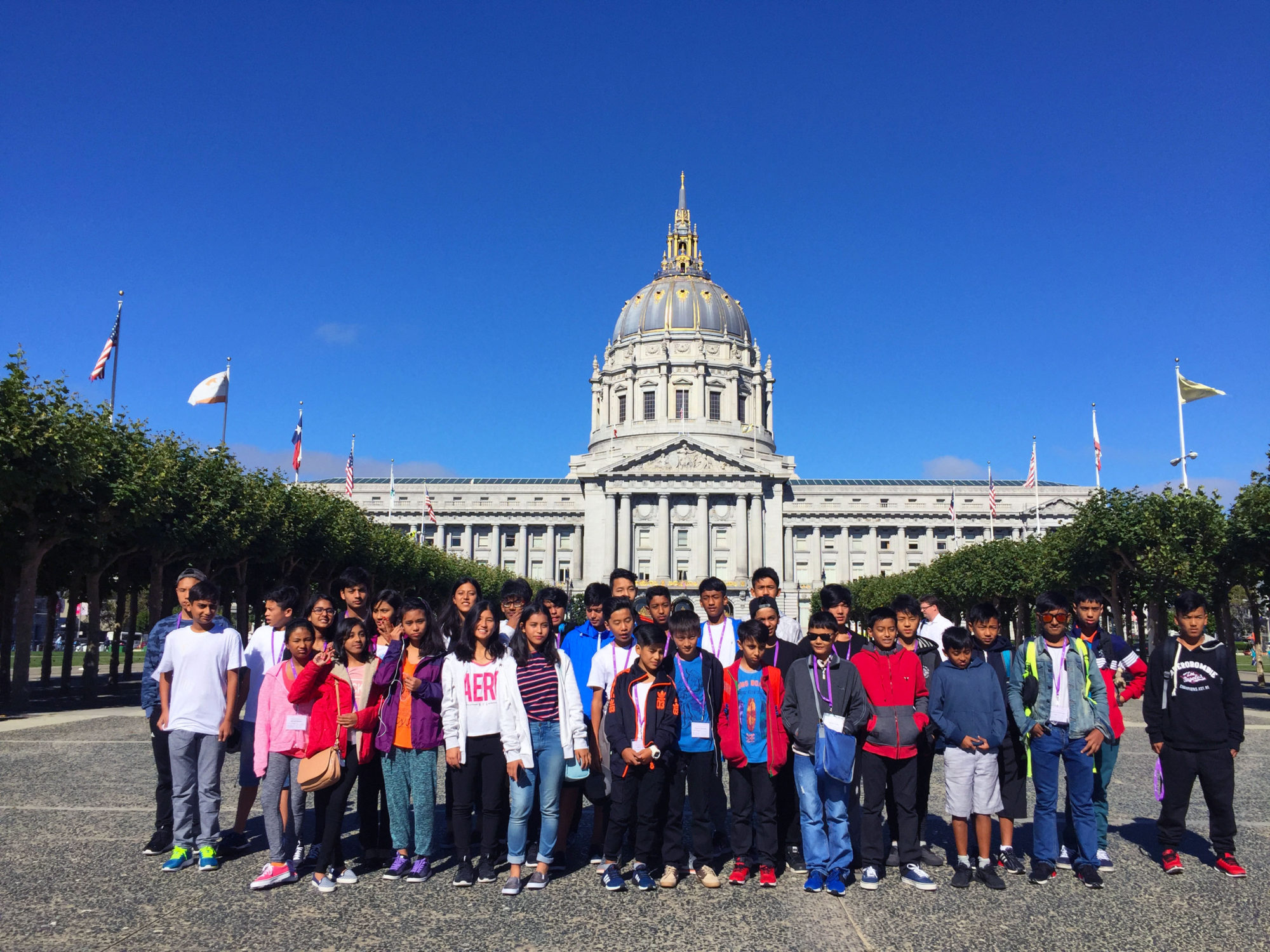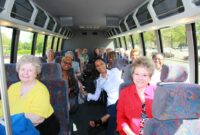Educational travel tours for adults offer a unique blend of learning and adventure, transforming traditional vacations into enriching experiences. These tours cater to a diverse audience, each with specific interests and learning styles. Whether exploring historical sites, immersing in vibrant cultures, or venturing into breathtaking natural landscapes, these journeys provide opportunities for personal growth and intellectual stimulation far beyond the typical holiday.
This exploration delves into the various aspects of designing and marketing successful educational travel tours for adults, from understanding target audience preferences to implementing sustainable and ethical practices. We will examine the logistical challenges and creative solutions involved in crafting unforgettable learning experiences that resonate with adult learners.
Marketing and Promotion Strategies
Successfully marketing educational travel tours to adults requires a multi-faceted approach that leverages both traditional and innovative marketing channels. Understanding the target audience’s preferences and utilizing the most effective platforms are crucial for generating interest and driving bookings.
Innovative Marketing Strategies for Adult Educational Travel Tours
To attract adults to educational travel tours, three innovative marketing strategies can be employed. These strategies focus on creating unique experiences and utilizing targeted communication channels to reach potential customers effectively.
- Partnering with Influencers: Collaborating with travel bloggers, educators, or experts in relevant fields can significantly increase brand awareness and credibility. Influencers can create engaging content showcasing the tour’s unique aspects and appealing to their established audience. For example, partnering with a history professor who has a strong social media following could dramatically boost interest in a historical tour of Rome. This strategy leverages the trust and authority the influencer already possesses within their niche community.
- Experiential Marketing Events: Hosting pre-tour events, such as lectures, workshops, or tasting sessions related to the tour’s theme, can create excitement and build anticipation. These events allow potential customers to experience a taste of the tour’s offerings and engage directly with the tour organizers. For instance, a culinary tour of Tuscany could host a pre-tour Italian cooking class, allowing attendees to sample the cuisine and interact with the tour guide, thus increasing their desire to participate in the full tour.
- Personalized Email Marketing Campaigns: Utilizing data collected from website interactions and inquiries, personalized email campaigns can be created to target specific interests and travel styles. This targeted approach ensures that the right message reaches the right audience, increasing engagement and conversion rates. For example, an email campaign targeting individuals interested in photography could highlight the stunning landscapes and photo opportunities on a photography tour of Iceland, while a campaign targeting history buffs could focus on the historical significance of the locations visited on a historical tour of the American Revolution.
Social Media Marketing versus Traditional Advertising
Social media marketing and traditional advertising offer distinct advantages and disadvantages when promoting educational travel tours to adults.
Social media marketing, through platforms like Facebook, Instagram, and YouTube, offers highly targeted advertising options, enabling precise audience segmentation based on demographics, interests, and travel behavior. It also allows for direct engagement with potential customers, fostering a sense of community and building brand loyalty. However, organic reach on social media can be challenging, requiring consistent investment in paid advertising to maximize visibility.
Traditional advertising, such as print ads in travel magazines or radio advertisements, can reach a broader audience but lacks the precise targeting capabilities of social media. It also offers less opportunity for direct engagement and feedback from potential customers. However, traditional advertising can still be effective in reaching older demographics who may be less active on social media. Ultimately, a balanced approach combining both social media and traditional advertising is often most effective.
Promotional Flyer: “Ancient Wonders of Greece” Educational Tour
[Image Description: A vibrant photograph showcasing the Acropolis in Athens bathed in the golden light of sunset. The Parthenon stands majestically against a clear, twilight sky, its ancient marble columns silhouetted against the warm hues. The image conveys a sense of history, grandeur, and the beauty of the Greek landscape. The photo is sharply focused, highlighting the intricate details of the architecture and the texture of the ancient stones.]
Headline: Unearth the Secrets of Ancient Greece
Sub-headline: A 10-Day Educational Journey Through History and Culture
[Image Description: A close-up shot depicting a meticulously crafted mosaic tile from a Greek ruin. The vibrant colors and intricate details of the mosaic are highlighted, showcasing the artistry and craftsmanship of ancient Greece. The image provides a sense of the richness and detail that awaits travelers on the tour.]
Tour Highlights:
* Explore the Acropolis, Parthenon, and other iconic Athenian landmarks.
* Delve into the myths and legends of ancient Greece with expert-led lectures.
* Visit the archaeological sites of Delphi and Olympia, uncovering ancient treasures.
* Enjoy authentic Greek cuisine and experience the vibrant culture of modern Greece.
* Engage in interactive workshops and discussions with leading archaeologists and historians.
[Image Description: A panoramic view of the stunning coastline of Santorini, featuring the iconic white-washed buildings clinging to the cliffs overlooking the Aegean Sea. The image showcases the breathtaking beauty of the Greek islands and hints at the relaxation and cultural immersion that the tour offers.]
Dates: October 20th – October 29th, 2024
Price: $4,999 (includes flights, accommodation, excursions, and meals)
Book Now: [Contact Information]
Educational Content and Experiences
Engaging adult learners on educational travel tours requires a strategic blend of informative content delivery and interactive experiences. The goal is to foster deeper understanding and lasting memories, transforming the trip from a simple vacation into a valuable learning opportunity. This involves careful planning of both the on-site activities and supplementary materials.
Interactive learning activities significantly enhance knowledge retention and engagement. By moving beyond passive observation, participants actively participate in the learning process, leading to a richer and more meaningful experience.
Integrating Interactive Learning Activities
Interactive learning activities can be seamlessly woven into the fabric of an educational travel tour. These activities should be tailored to the specific tour theme and the learning styles of the adult participants. For example, a historical tour might incorporate role-playing exercises where participants reenact historical events, or a culinary tour could involve hands-on cooking classes led by local chefs. The key is to create opportunities for active participation and collaboration. A well-structured itinerary incorporating these activities ensures a dynamic and enriching learning journey.
Examples of Hands-on Learning Experiences
Several hands-on learning experiences cater specifically to adult learners in various tour settings. A historical tour in Rome could include a guided excavation simulation at an archaeological site, allowing participants to experience the process of uncovering the past firsthand. Similarly, a wildlife tour in Costa Rica might involve a guided nature walk with opportunities to identify local flora and fauna, taking detailed notes and contributing to citizen science projects. A culinary tour in France could feature a private lesson with a renowned pastry chef, where participants learn to prepare classic French desserts. These examples highlight the versatility of hands-on activities in different contexts.
Pre-Trip and Post-Trip Materials
Pre-trip materials set the stage for a successful learning experience. These materials could include a detailed itinerary, background readings on the tour’s theme, a glossary of key terms, and pre-trip quizzes to assess prior knowledge and identify areas requiring more focus. Post-trip materials help solidify learning and extend the experience beyond the tour’s duration. These might include follow-up readings, assignments, group discussions via online forums, or even a collaborative project where participants contribute to a shared knowledge base based on their experiences. These materials ensure that the learning process continues after the tour concludes.
Final Wrap-Up
Ultimately, the success of educational travel tours for adults hinges on a careful balance of engaging content, meticulous planning, and a deep understanding of the target audience. By blending educational rigor with exciting exploration, these tours offer a transformative travel experience that fosters personal growth, expands horizons, and creates lasting memories. The future of educational travel lies in its ability to continuously innovate and adapt to the evolving needs and desires of adult learners, creating enriching journeys that combine intellectual curiosity with the thrill of discovery.



